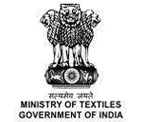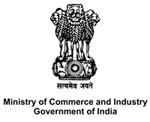Lungies & Dhoties
In today's globalized cross-cultural lifestyle, adapting to other country's ethnic lifestyle is increasingly becoming a trend. Expatriates traveling across the world are becoming instrumental in creating a whole new trend of ethnic or cultural clothing in several countries other than their own.
Indian Handwoven lungies are considered the best in the international markets due to their good quality, appealing designs and competitive prices.
Originated in Tamil Nadu in India, Lungi is a traditional garment worn around the waist by men or women. Lungies are worn in various ways, depending on cultural, social and ceremonial aspects.
A Lungi carries colourful floral or windowpane patterns. Today stripes and checks designs are also quite popular. Most lungies are made in cotton. Silk lungies are made for special occasions.
Regardless of design or colour, most lungies often adorn a woven stripe at the top and bottom edge to prevent fraying. Lungi has many versions. For example, mostly white cotton lungies are worn in south India, while coloured and intricately designed ones are preferred in North.
Traditionally, the dress of the Hindu male, consisted of two lengths of fabric, one worn over the shoulder and upper part of the body and the other used as a covering for the loins and legs. "Dhoti" is the unstitched length of cloth used as a lower garment by men. From region to region, the length of the dhoti and the way it is worn varies. It serves a variety of purposes, from the functional to the ceremonial. The dhoti, even today, is one of the more popular forms of apparel of the Indian male.
Other important ethnic clothing from India include Churidar SalwarKameez, Shawls, GhaghraCholi, Kurtas, the ensembles for women in pure cotton and variety of silks. These products are today exported the world over, especially UK, UAE, Saudi Arabia, Iran, Iraq, USA, Canada, Singapore, Hong Kong and Malaysia. Apart from women's wear, the range of ethnic Indian Men's wear, especially, Pyjama Kurta, Sherwani, Pagadi (head gear) are quite popular in the international
Besides the products of its own cultural origin, India also exports cultural and ethnic clothing to several other countries. For Instance, Hijab and Kandora for Middle-East Asia and North Africa; Tobe for African countries; Sarong for Malaysia; Kimonos for Japan are amongst products exported to meet the demand from various ethnic groups.
Thus, India has a large international market for a variety of ethnic Indian and international apparel and accessories.



